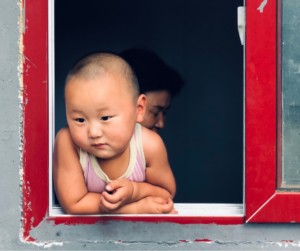 China announced plans, in 2019, to increase the number of children allowed per couple to three children, to address the country’s demographic crisis due to forty years of its mandatory, one-child per family policy. As a result of this policy, the country is now experiencing a population decline that is rapid and potentially irreversible and will have a negative impact on the sustainability of China’s economy and culture.
China announced plans, in 2019, to increase the number of children allowed per couple to three children, to address the country’s demographic crisis due to forty years of its mandatory, one-child per family policy. As a result of this policy, the country is now experiencing a population decline that is rapid and potentially irreversible and will have a negative impact on the sustainability of China’s economy and culture.
In response, the Chinese government announced plans to cut back on abortions, to restrict access to contraceptives and to refuse to make vasectomies available, all under the guise of improving “reproductive health”. The announcement was met with panic by many young Chinese couples, who grew up under the one-child policy, who are comfortable in their lives, and do not want to have children. It seems China’s policy makers will have an uphill battle to undo the forty years’ fallout of their successful, but brutal population control policies.
Directors Jialing Zhang and Nanfu Wang’s 2019 documentary, One Child Nation (available on Amazon Prime), provides a glimpse into life under China’s repressive one-child policy. The documentary is Ms. Wang’s reflection of her own family’s experiences under the policy and her perspective, now, as a mother of a young child. But more than just a personal portrait, the documentary captures the human toll and the images of pain and anguish the Chinese suffered.
Ms. Wang remembers growing up with the relentless and pervasive one-child propaganda present in billboards and signs hanging all over buildings and painted on their facades; in the cultural and entertainment propaganda that they were obliged to watch in the community squares; in matchboxes, cereal boxes, children’s playing cards, etc. The propaganda was also present in the ever-watchful eyes of neighbours and local officials, tasked with policing women’s fertility that included monitoring their monthly cycles. The Chinese were constantly taught that it was their “duty” to limit the number of children in their families to ensure the well-being of their country.
Ms. Wang recalls her “shame” when her mother conceived a second child, as though her family had done something wrong. Her grandmother put a basket beside her mother’s bed, in case the child to be born turned out to be a girl. If this happened, they would have been obliged to put the new baby in the basket, ready to send her away. Ms. Wang’s family was “relieved” when a cherished son was born instead and it was “acceptable” to “keep” him.
It was the common practice, to abandon baby girls, as sons were preferable. The girl babies were left in public market places, in hopes that someone would decide to care for them. Instead, most of them died of exposure and starvation. Some “lucky” babies were picked up by paid ‘scavengers’, who handed the abandoned girl babies to orphanages, and so began the lucrative billion dollar industry of international adoptions for abandoned Chinese girls.
The filmmakers interviewed some of the members of the town where Ms. Wang grew up. What they captured were the facial expressions and body language of ordinary people who, for years, were made to commit atrocities to vulnerable babies. With pained resignation, they stated that they “had no choice” because it was their government’s policy.
A midwife was interviewed. She had assisted at births but she could not remember how many because what was seared in her memory were the images of the over 50,000 abortions she performed. She is now trying to atone for her “errors” by helping families, who are having fertility issues, to conceive a child. A local artist, who found discarded bodies of aborted babies in the garbage dump, now creates beautiful images of children in various stages of development inside the womb. A local village official, who was in charge of forcing and dragging women to have abortions and sterilizations, could not look up as he recalled his actions. And, finally, there was the father, who was forced to leave his daughter in the woods, and who cried for her every day, whose eyes testify to the fact that he still cries for her to this day.
The documentary was Ms. Wang’s personal attempt to come to grips with the pain and suffering that they all endured, but it also captured the broken humanity of the Chinese people because of their compliance to what they knew in their hearts was evil.
The documentary is a cautionary tale of what happens to people, when they give up their humanity to an indifferent, cold, and calculating government. The film preserves the images of a people who are decent and loving at their core, but have been damaged by state harassment and coercion. Such damage extends for generations.
